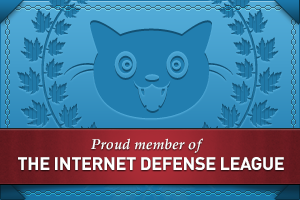
Unfortunately, smoking is still popular in parts of the world such as Hong Kong – and the territory’s health minister, Professor Lo Chung-mau said now advised people to ‘stare disapprovingly’.
It’s part of the latest effort to help rid Hong Kong of tobacco for good, with Professor Lo saying those smoking in prohibited areas aren’t likely to “hit back” at glares from their fellow citizens. Hmmm.
“Cigarettes can harm the health of all of us,” Professor Lo said during a meeting of the Legislative Council’s health service panel on Friday 14th July.
He continued:
When the members of the public see people smoking in non-smoking areas, even if no law enforcement officers can show up immediately, we can stare at the smokers. When someone takes out a cigarette at a restaurant, everyone on the premises can stare at that person. I do not believe that person would dare to hit back at everyone at the restaurant as they are simply staring.
It’s Professor Lo’s hope that adopting such behaviour will help shape the city into a “non-smoking culture”.
He continued: “Take queuing at a bus stop as an example. No one will say it requires the law to compel people to queue. Our society is able to create a culture where people will comply with this rule of queuing when waiting for buses. I hope the whole of society can build a non-smoking culture.”

Well, it’s probably a better idea than what I used to do when placed in a room with a group of smokers as a child – which was to just try and hold my breath, shout that I’m going to die, and cry a lot because my parents clearly didn’t love me or care about the cancer risk.
Prof Lo has also warned that surveillance footage and video clips provided by civilians will be used as evidence as part of the crackdown on smoking in prohibited areas such as restaurants, offices, and indoor and outdoor public spaces. Penalties of HK$1,500 (£147) are enforced for breaking the rules.
On the 12th, a public consultation paper was launched by health authorities in Hong Kong as they look for more effective strategies to tackle the smoking crisis.
Included within that paper was the idea of banning people born after a certain date from buying tobacco products, and a 75% tobacco tax.
We’ll see if it makes a difference.
In Pure Spirit
Have you been able to stop smoking? What worked for you? Plant-based nicotine alternative ripple suggests seven things to try to quit smoking.
Alternatively, and as you’d expect, Cancer Research UK has some advice too!
 Parabens are chemicals found in natural foods like beans, carrots and cucumbers, and man-made parabens have been used to preserve everyday products from toothpaste to cosmetics for more than six decades. However, some believe paraben preservatives could pose health risks – whilst the cosmetic industry deny there is cause for concern, governments decline to ban them, and regulatory bodies continue to sanction their use.
Parabens are chemicals found in natural foods like beans, carrots and cucumbers, and man-made parabens have been used to preserve everyday products from toothpaste to cosmetics for more than six decades. However, some believe paraben preservatives could pose health risks – whilst the cosmetic industry deny there is cause for concern, governments decline to ban them, and regulatory bodies continue to sanction their use.


